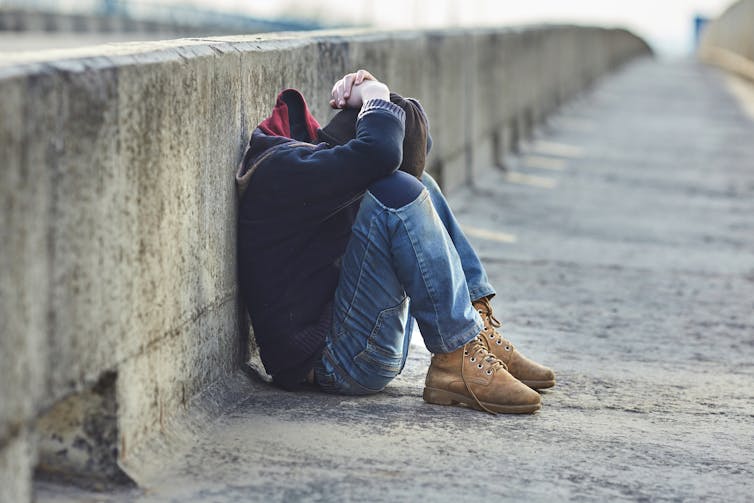When one of my 16-year-old students suggested I watch 13 Reasons Why – the harrowing US teen drama that centres around the suicide of a 16-year-old girl – I agreed because he said it “showed what being a teenager was actually like”.
I was curious. Like most parents I thought I understood what being a teenager was actually like, having been one myself. But in the ever-accelerating internet age, where social media simultaneously means a greater level of connectedness and isolation, being a teenager now is not the same experience that I had.
The current generation of adolescents has a completely different set of hurdles to negotiate as they make their way through school and enter the world of adulthood. Understandably, all parents want their children to pass through this stage as unscathed as possible. Could a TV programme really help them support their offspring as they find their way?
The controversial Netflix series is based upon the suicide of a girl called Hannah Baker who leaves 13 tapes, each for a specific person, explaining how each one contributed to her ending her life. The second series, which started streaming at the end of May, documents Hannah’s life as the court battle between her parents and the school, over who was responsible for her death, escalates to draw more of her contemporaries into the tale. A third season has just been announced.
Focusing on the day-to-day lives of young people, it is a deeply dispiriting drama. While the problems explored may seem alien to older viewers, they are serious and very real issues for teenagers. Having watched the first series, I believe it is imperative that adults seek to genuinely understand what youngsters face, and use the publicity surrounding 13 Reasons Why to start a bigger conversation with teens about the kinds of things that affect their mental health and general well-being.
The issues highlighted will horrify parents – bullying, isolation, mental illness, depression, self-harm, substance abuse, sex, rape and suicide — but these are issues that many young people are experiencing. And some parents may simply not be aware of it.
Views on the programme are mixed, with some finding the scenes of suicide and rape gratuitous and overly graphic. But young people I have spoken to largely agree that this drama is representative of life as a teenager in 2018. The pain felt by characters who are self-harming, grieving over lost friends and struggling with their identity and every decision they make is clear to see. In the course of my work, one teen who lost a 14-year-old friend to suicide told me that, six years on, 13 Reasons Why helped explain all the things they had felt – something which they struggled to articulate at the time.

Being aware of what matters to a young person is crucial if we are to ensure that struggling children are supported through these difficult teenage years; if it matters to them, it should matter to the rest of society. Only teenagers are experts in how to be teenagers in 2018, so they need adults to listen to them and take their problems seriously. There needs to be dialogue.
I frequently come across adults who believe that children have too many rights, that rights should only be granted to youngsters showing responsibility. Instead of focusing upon negative stereotypes of young people, we need to realise that we cannot expect model citizens at 18 without support and involvement. Effective listening means working with young people to share their problems, not telling them how to feel or act – a major deficit in our education system and across society.
Mental health awareness
Some have argued that 13 Reasons Why provides triggers for suicidal tendencies, but it does highlight the growing issue of suicidal teens and the pressures they face. Research shows that teen suicides in the UK are increasing and the causes are often the same issues explored in the drama.
When you consider that over half of mental health problems in adult life start by the age of 14, and 75% by the age of 18, society needs to understand the difficulties that children and young people are facing. It is clear that the NHS is struggling to cope with the number of young people needing mental health support so it is an issue that needs to be urgently addressed if a mental health epidemic amongst teens is to be avoided.
In 13 Reasons Why, students have a school counsellor (in the UK pupils have guidance teachers) but it is not standard practice for those who work in schools to be trained to speak and listen properly to young people in terms of mental health. Mental health promotion cannot just be left to outside agencies. The likes of the NSPCC, The Samaritans and Mind are all experienced at helping youngsters who need to talk and provide advice to those looking to help others with mental illness. But children need proper access to this at school.
Listen without prejudice
We’ve all been adolescents, but as we age we tend to forget the pain of being a teenager – and the problems we faced back then recede as life brings new concerns. It’s easy to diminish the growing pains of our teenage years – we grow, we change and hopefully we mature. But those of us who work with and promote the rights of children and adolescents have respect for the young people who face myriad daily battles, pressures and emotional hurdles.
Whether you love, hate or are yet to see 13 Reasons Why, it’s clear the Netlix drama has had an impact, underscoring the importance of dialogue, empathy and ensuring youngsters know that there are people and services they can turn to for help. It all starts with listening, without judgement. As one of the characters says: “The minute you start talking about it, it gets easier.” Children need to know it’s okay not to be okay.

